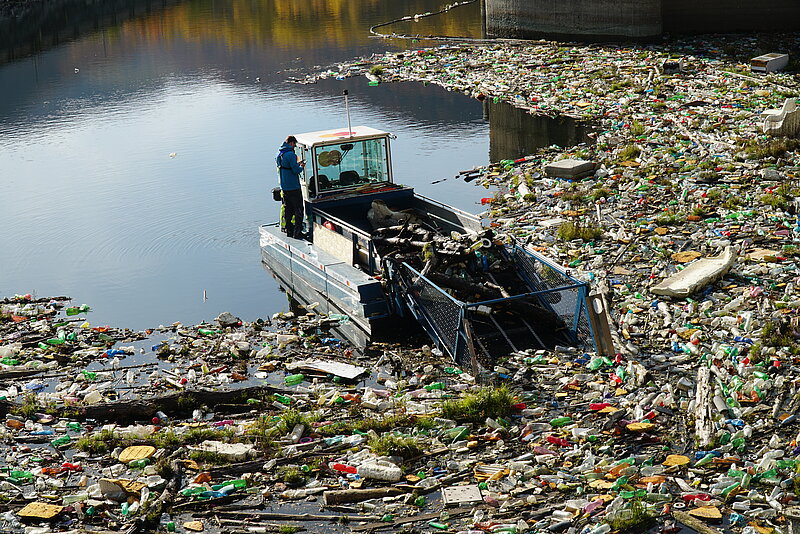Plastic Offset Credits as Catalysts for Change
The concept of Plastic Offset Credits offers a creative solution to address the problem of plastic waste and promote corporate responsibility. Essentially, this framework is a financial tool that motivates companies to reduce their plastic usage by supporting environmentally significant projects. That sounds great – but how does this concept work?
Analogous to carbon offsets, Plastic Offset Credits enable companies to acknowledge and mitigate the adverse environmental impacts of their plastic consumption. These organizations undertake wide assessments of their plastic usage and waste generation, striving to implement strategies that reduce their plastic footprint. However, they acknowledge the challenges involved in completely removing plastic from their operations and are exploring other ways to promote sustainability.
Enter Plastic Offset Credits—a means to effect substantial change. Organizations opt to purchase these credits, each representing a quantifiable measure of plastic waste that has been effectively removed, recovered, or recycled from the environment. Companies support projects and initiatives to combat plastic pollution by investing in these credits.
The capital raised through the sale of Plastic Offset Credits is strategically channeled into critical endeavors. These may encompass establishing and enhancing recycling infrastructure, large-scale cleanup initiatives along coastal regions, community empowerment programs fostering effective plastic waste management, and industries driving research and innovation in sustainable alternatives to plastic. In essence, Plastic Offset Credits deliver a twofold benefit. They empower organizations to responsibly address their plastic footprint while forging a virtuous cycle of funding and support for crucial initiatives combating plastic pollution.
Our Mix-UP partner everwave is a social enterprise that is dedicated to protecting rivers and the ocean from plastic waste and promoting a more sustainable lifestyle, in order to protect aquatic environments as precious habitats, food resources, and economic regions.
everwave is committed to ensuring that the oceans are no longer polluted by plastic waste in the future. To implement this idea meaningfully, they aim to tackle the problem earlier, mainly focusing on the significant proportion of plastic that enters the sea through rivers. everwave's vision is to protect the world's oceans and rivers from increasing waste pollution by employing a holistic approach. everwave believes that a partnership between business and environmental protection is the model for the future, recognizing that sustainability is not just a passing trend but an influential force in economics.
With state-of-the-art technology and strong partnerships, they have already made a visible impact by removing more than 762 tonnes of waste from the water in Europe and Southeast Asia. Their objective is to consolidate their operations at these sites and drive further Cleanup Missions, particularly on other continents such as Africa, Central Asia, and South America. While proud of their achievements, they acknowledge that much work still needs to be done.
everwave's pricing model operates on the basis that for every 1€ contributed, they remove 1kg of garbage from the world's waters. This garbage is collected using their innovative cleanup technologies, such as the garbage collection boat CollectiX and artificial intelligence. Their operations include removing various types of waste, including plastic, glass, metals, textiles, refrigerators, and more. They even address the wood contaminated with microplastics, although it is not included in the pricing structure, as they recognize its harmful impact on water bodies.
This initiative empowers companies to assume social responsibility in partnership with them. By participating, companies can collectively generate visible impact, inspire customers, and engage them in the 1€=1kg offsetting scheme. Their focus extends beyond short-term compensation, aiming for a lasting connection between companies and environmental concerns.
Moreover, companies can become integral members of the initiative beyond Plastic Credits. For instance, they can become boat sponsors or supporters of specific local projects, such as the sorting facility in Cambodia. Collaboration and exploration of synergies are encouraged to accelerate progress and achieve visible impact together, all in the name of preserving the health of our oceans and rivers.
Plastic Offset Credits represent a unique mechanism enabling corporate entities to tangibly contribute towards alleviating the plastic waste crisis. By embracing this approach, organizations can actively champion sustainability and pave the way for a future characterized by enhanced environmental stewardship.


